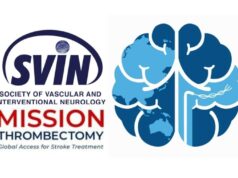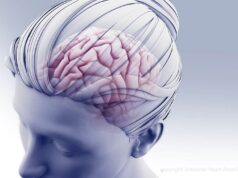The University of Miami Health System is starting a clinical trial to further evaluate the safety and efficacy of an investigational cell therapy for the treatment of chronic motor deficit following an ischaemic stroke. The phase 2b study will be led by Dileep Yavagal, director of Interventional Neurology and a member of the Interdisciplinary Stem Cell Institute at the University of Miami, which is conducting a number of FDA-approved clinical trials in stem cell therapy. Jonathan Jagid, associate professor of Neurological Surgery, is the surgical principal investigator of the trial.
“The debilitating effects of an ischaemic stroke causes impaired motor skills and decreases a patient’s quality of life significantly,” said Yavagal, who is also associate professor of Neurology and Neurological Surgery at the University of Miami Miller School of Medicine, Miami, USA. “Our goal at the Interdisciplinary Stem Cell Institution is to find viable treatment options to improve serious disabilities from strokes that will one day be used in clinical application. The ACTIsSIMA trial (Allogenic cell therapy for ischemic stroke to improve motor abilities) will help determine whether this investigational cell therapy is a safe and effective treatment option for chronic stroke.”
With approximately 800,000 strokes occurring in the USA every year, stroke is the leading cause of acquired disability in that country; more than 80% of patients are left with residual disability. Traditional stroke treatments generally show little to no improvement in patients after the first six months following a stroke, creating a great need for new therapies that reduce disability and improve recovery.
The ACTIsSIMA clinical trial is a study of the potential benefit of stem cells in stroke patients. It will examine the benefit of genetically modified adult bone-marrow-derived stem cells in patients 18–75 years of age who have experienced an ischaemic stroke in the previous six months to seven and a half years and still have moderate weakness in their extremities on one side.
Yavagal was the national co-principal investigator in another yearlong safety study of stem cells in stroke patients who had suffered from ischaemic strokes. The study, Intra-arterial delivery of autologous aldhbr cells in ischemic stroke: final 1-year results of the recover-stroke trial, found that stem cells can be safely infused to the brain through the carotid artery after a stroke. An indication of possible benefit was also noted which will be further confirmed in future studies.
“The work at the Interdisciplinary Stem Cell Institute at the University of Miami is dedicated to finding solutions for debilitating, or even fatal, illnesses and conditions,” said Joshua Hare, founding director of the Interdisciplinary Stem Cell Institute at the University of Miami Miller School of Medicine. “Dr Yavagal has made significant contributions to understanding better the safety and efficacy of cell-based therapies for stroke patients. The ACTIsSIMA trial will allow for the research to continue and potentially move us toward finding a therapy that will improve the lives of stroke patients.”
The phase 2b clinical trial follows a previous open label phase 1/2a clinical trial in a similar patient population. It will further evaluate the safety and efficacy of the treatment in a blinded and controlled setting.
The Interdisciplinary Stem Cell Institute at the University of Miami Health System is one of approximately 60 clinical trial sites throughout the USA. Total enrolment is expected to reach 156 patients.













